Automobile Overhaul: Keep Your Car in Great Condition
Have you ever thought about how important an automobile overhaul is? Not only does it keep your car in good condition, but it can also help you prevent accidents and save money in the long run. In this article, we will explore the different parts of your car that you should check regularly to ensure it is running at its best. Here is a complete guide on car overhaul.
- Ballonstrasse 20, 8952 Schlieren
- Mon-Fri: 07:30/18:00
- Saturday: 09.00 - 12.00
- +41 44 730 77 44
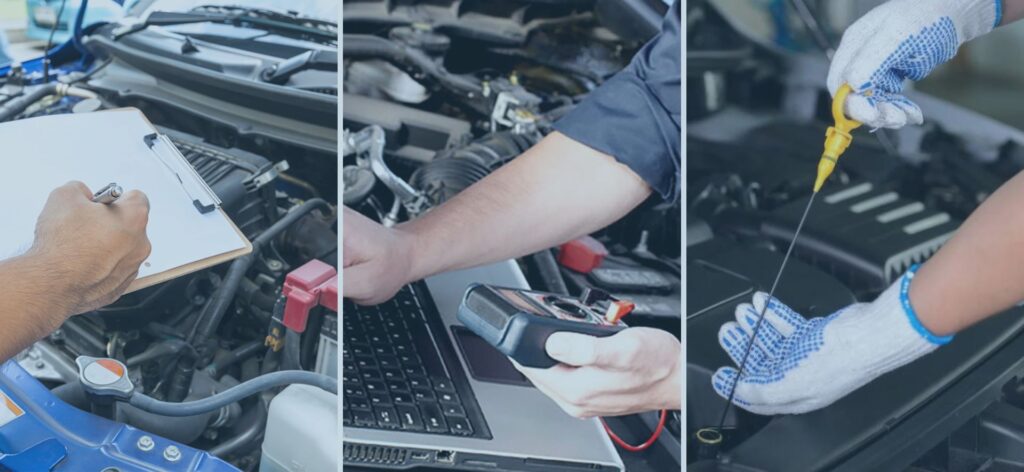
One of the first checks to be made during an automobile overhaul is the oil level. Oil is essential for engine lubrication, and too low a level could cause irreparable damage. Check the oil level regularly and refill if necessary. Also be sure to change the oil regularly to keep the engine in good condition.
Low tire pressure can cause higher rolling resistance, which means the engine will have to work harder and consume more fuel. Check tire pressures regularly and be sure to inflate them to the manufacturer’s recommended pressure. This will help improve fuel efficiency and reduce tire wear.
An efficient lighting system is essential to your safety while driving. Check the operation of headlights, taillights, sidelights and fog lights regularly. Replace bulbs that do not work and make sure other motorists can see you while driving.
Your car’s heating and air conditioning system is critical to ensure maximum comfort while driving. Check the operation of the system regularly and make sure it is heating and cooling the passenger compartment properly. If not, it may be necessary to replace the air filter or have more extensive maintenance performed.
Your car’s exhaust system removes exhaust gases from the engine and reduces air pollution. Check the exhaust system regularly for leaks, damage, or blockages. Problems with the exhaust system can affect your car’s performance and cause increased fuel consumption.
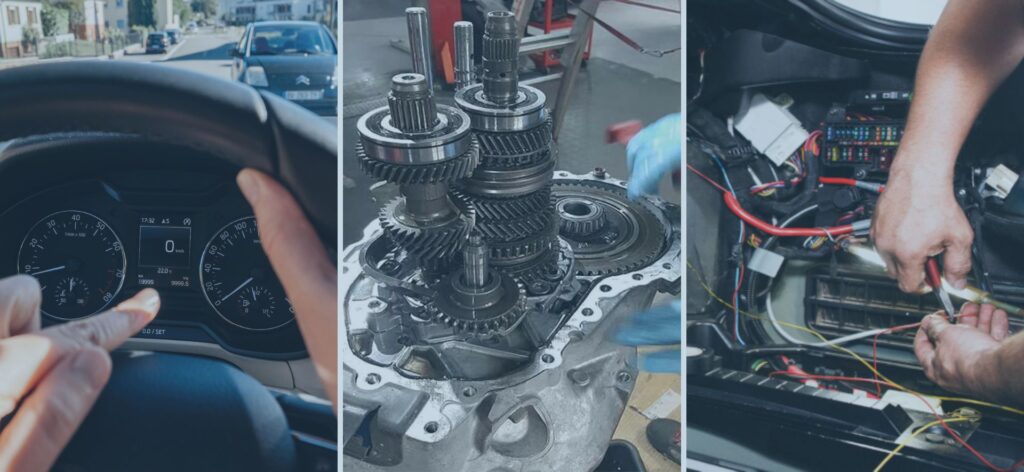
Your car’s fuel system provides fuel for the engine to run the car. Check the fuel tank regularly and make sure there are sufficient amounts of fuel. Also check the fuel filter and replace it regularly. A dirty fuel filter can cause reduced engine performance and higher fuel consumption. Also, make sure you have no fuel leaks and that all pipes are in good condition.
Your car’s battery is what powers it electrically. Check the battery regularly to make sure it is not discharged or damaged. Also be sure to check the battery terminals to make sure they are securely connected and free of corrosion.
The car’s starting system is what makes it start. Check the functionality of the starter system regularly to make sure it is working properly. If you are experiencing problems starting your car, you may need to have your battery, starting motor, or starting solenoid checked.
There are several important fluids that you need to check regularly, such as radiator fluid, brake fluid, power steering fluid, and windshield washer fluid Be sure to check the levels of these fluids regularly and refill as needed. This will help keep the car in good running condition.
Seat belts are critical to your safety while driving. Check seat belts regularly for damage or wear and that they stretch and retract properly. If not, the seat belts may need to be replaced.
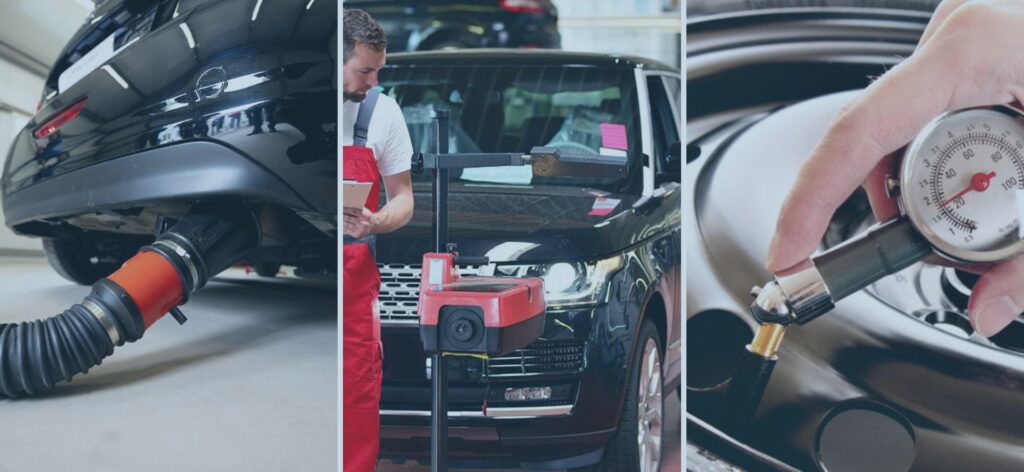
Car instrumentation, such as the odometer, tachometer, and water thermometer, is important for monitoring car performance. Check the instrumentation regularly to make sure it is working properly and that there are no problems with the gauges.
The car suspension helps provide a comfortable and safe ride. Check the suspension system regularly for damage or wear to the springs, shocks, or arms. If you experience problems, you may need to replace some suspension components.
The car’s transmission helps transfer power from the engine to the wheels. Check the transmission regularly for oil leaks or component damage. Otherwise, it may be necessary to have some transmission components replaced or repaired.
The braking system is one of the most important components of your car in terms of safety. Check the brake system regularly to make sure it is working properly and that the brake pads are in good condition. Also be sure to check the brake fluid and replace it regularly to keep the brake system in excellent working condition.
The car’s steering system is what allows you to control the direction of the car. Check the steering system regularly for problems with belts or seals and that your car responds properly to steering wheel movements.
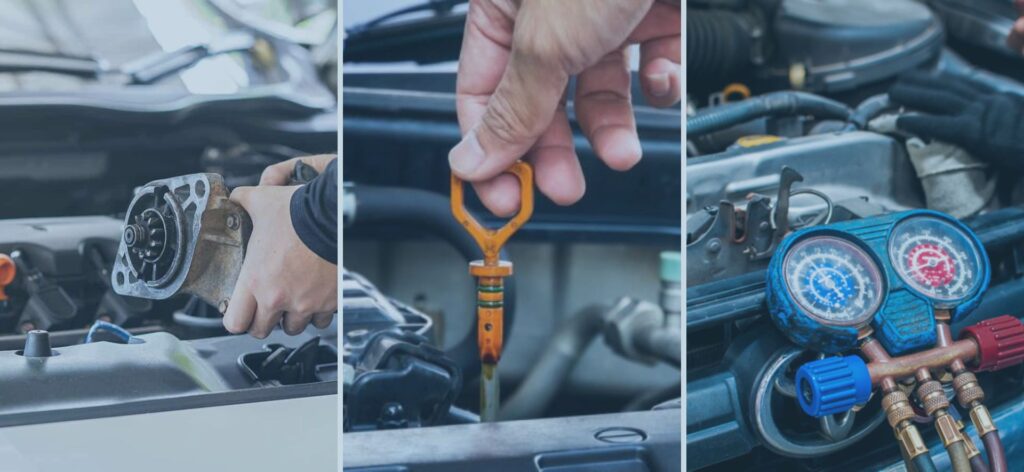
As mentioned earlier, the car’s suspension helps provide a comfortable and safe ride. Check the suspension system regularly to make sure there are no problems with the shocks or springs.
The car’s electrical system is responsible for providing electrical power to the various components of the car. Check the electrical system regularly for problems with the battery, alternator, or ignition system. Also be sure to check fuses and electrical connections to make sure they are securely connected.
The car’s air conditioning system is responsible for providing air conditioning or heating inside the car’s passenger compartment. Check the air conditioning system regularly to ensure that it is working properly and that there is sufficient refrigerant and refrigerant gas.
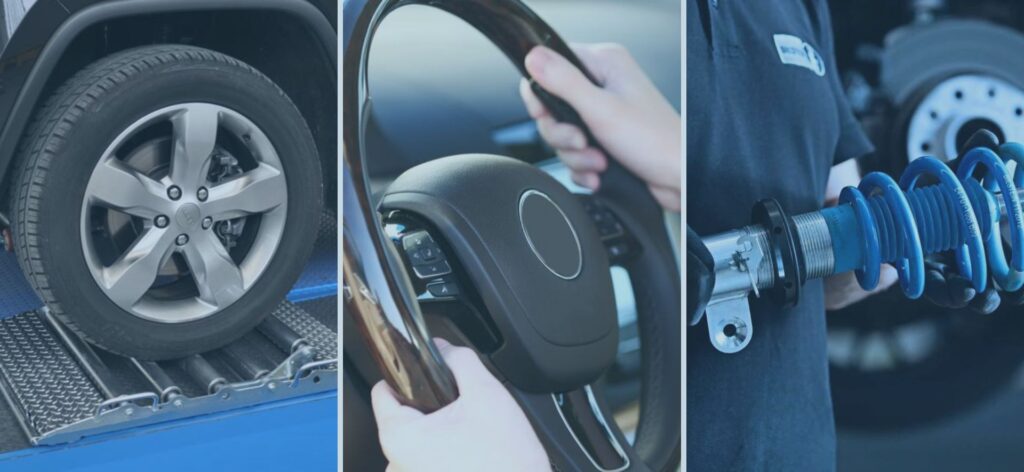
Checking the Oil Level
One of the first checks to be made during an automobile overhaul is the oil level. Oil is essential for engine lubrication, and too low a level could cause irreparable damage. Check the oil level regularly and refill if necessary. Also be sure to change the oil regularly to keep the engine in good condition.
Checking Tire Pressure
Low tire pressure can cause higher rolling resistance, which means the engine will have to work harder and consume more fuel. Check tire pressures regularly and be sure to inflate them to the manufacturer’s recommended pressure. This will help improve fuel efficiency and reduce tire wear.
Control of the Lighting System
An efficient lighting system is essential to your safety while driving. Check the operation of headlights, taillights, sidelights and fog lights regularly. Replace bulbs that do not work and make sure other motorists can see you while driving.
Heating and Air Conditioning System Control
Your car’s heating and air conditioning system is critical to ensure maximum comfort while driving. Check the operation of the system regularly and make sure it is heating and cooling the passenger compartment properly. If not, it may be necessary to replace the air filter or have more extensive maintenance performed.
Discharge System Control
Your car’s exhaust system removes exhaust gases from the engine and reduces air pollution. Check the exhaust system regularly for leaks, damage, or blockages. Problems with the exhaust system can affect your car’s performance and cause increased fuel consumption.
Power System Control
Your car’s fuel system provides fuel for the engine to run the car. Check the fuel tank regularly and make sure there are sufficient amounts of fuel. Also check the fuel filter and replace it regularly. A dirty fuel filter can cause reduced engine performance and higher fuel consumption. Also, make sure you have no fuel leaks and that all pipes are in good condition.
Battery Check
Your car’s battery is what powers it electrically. Check the battery regularly to make sure it is not discharged or damaged. Also be sure to check the battery terminals to make sure they are securely connected and free of corrosion.
Control of the Starting System
The car’s starting system is what makes it start. Check the functionality of the starter system regularly to make sure it is working properly. If you are experiencing problems starting your car, you may need to have your battery, starting motor, or starting solenoid checked.
Controlling Liquid Levels
There are several important fluids that you need to check regularly, such as radiator fluid, brake fluid, power steering fluid, and windshield washer fluid Be sure to check the levels of these fluids regularly and refill as needed. This will help keep the car in good running condition.
Seat Belt Check
Seat belts are critical to your safety while driving. Check seat belts regularly for damage or wear and that they stretch and retract properly. If not, the seat belts may need to be replaced.
Instrumentation Control
Car instrumentation, such as the odometer, tachometer, and water thermometer, is important for monitoring car performance. Check the instrumentation regularly to make sure it is working properly and that there are no problems with the gauges.
Control of the Suspension System
The car suspension helps provide a comfortable and safe ride. Check the suspension system regularly for damage or wear to the springs, shocks, or arms. If you experience problems, you may need to replace some suspension components.
Transmission Control
The car’s transmission helps transfer power from the engine to the wheels. Check the transmission regularly for oil leaks or component damage. Otherwise, it may be necessary to have some transmission components replaced or repaired.
Braking System Control
The braking system is one of the most important components of your car in terms of safety. Check the brake system regularly to make sure it is working properly and that the brake pads are in good condition. Also be sure to check the brake fluid and replace it regularly to keep the brake system in excellent working condition.
Steering Check
The car’s steering system is what allows you to control the direction of the car. Check the steering system regularly for problems with belts or seals and that your car responds properly to steering wheel movements.
Verification of Suspension
As mentioned earlier, the car’s suspension helps provide a comfortable and safe ride. Check the suspension system regularly to make sure there are no problems with the shocks or springs.
Verification of the Electrical System
The car’s electrical system is responsible for providing electrical power to the various components of the car. Check the electrical system regularly for problems with the battery, alternator, or ignition system. Also be sure to check fuses and electrical connections to make sure they are securely connected.
Verification of the Air Conditioning System
The car’s air conditioning system is responsible for providing air conditioning or heating inside the car’s passenger compartment. Check the air conditioning system regularly to ensure that it is working properly and that there is sufficient refrigerant and refrigerant gas.
In conclusion, the car overhaul is a crucial step in ensuring the safety and reliability of the vehicle. There are many components that are checked during the overhaul, from seat belts to the battery, brakes to the transmission, and even the air conditioning and exhaust system. Thorough and periodic inspection of these components can prevent problems and malfunctions, and ensure a safe and comfortable driving experience. Don’t neglect your vehicle overhaul, rely on qualified professionals and keep your vehicle running smoothly.
